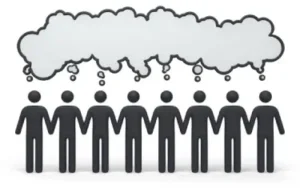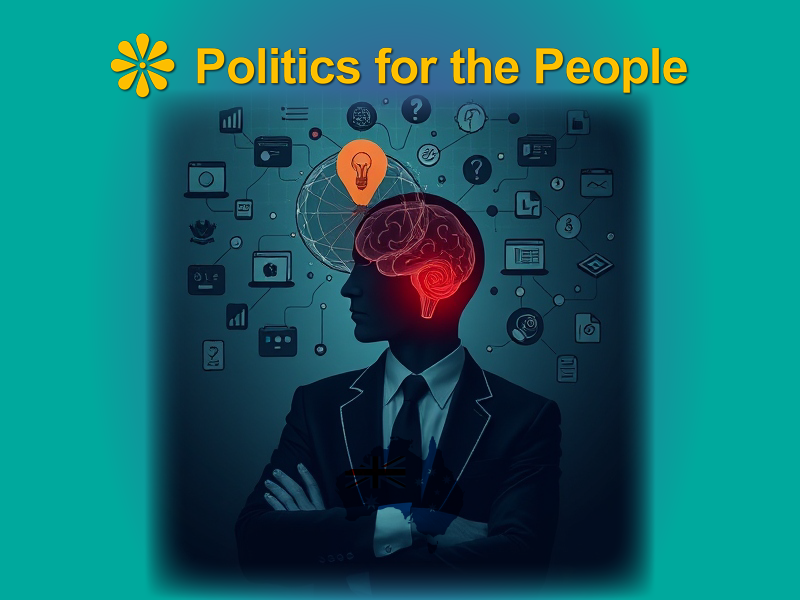Introduction: Psychological Price of Conformity
In the fabric of society, conformity—the act of matching attitudes, beliefs, and behaviours to group norms—plays a significant role but often comes with a heavy psychological cost.
From influential studies like Solomon Asch’s experiment in the 1950s, it’s clear how societal pressures can compel individuals to forsake their own feelings and truths in favour of group consensus, potentially leading to serious long-term mental health issues.
The Psychological Burden of Conformity
Insights from Solomon Asch’s Experiment
Solomon Asch’s Conformity Experiment, conducted in the 1950s, crucially highlights the powerful influence of group pressure on decision-making. This experiment revealed that individuals would often conform to a group’s incorrect choices despite knowing the correct answers themselves.
The discomfort and internal conflict induced by this dichotomy can lead to psychological distress, reducing one’s trust in their own judgment and fostering a dependency on group validation.
Long-term Mental Health Consequences

Living in a state of chronic conformity can lead to significant psychological distress. Symptoms such as anxiety, depression, and a diminished sense of self-worth are common as individuals suppress their true identities to fit societal moulds. Over time, this suppression can erode personal happiness and lead to a disconnection from one’s core beliefs and values, manifesting in more severe mental health issues.
The Psychological Price of Conformity.
Perpetuating Inequality and Stagnation
Conformity supports the maintenance of the status quo, including entrenched economic systems such as neoliberalism, which may perpetuate inequality and limit social mobility. By conforming to these paradigms, individuals contribute to the continuous cycle of economic disparities, ensuring that powerful economic and social structures stay unchallenged and unchanged.
Impact on Social and Economic Systems
By not challenging societal structures, conformity contributes directly to a widening wealth gap and the entrenchment of systemic inequalities. This affects not only individual lives but also the overall progression of society, stifling innovation and keeping outdated norms that no longer serve the common good.
Embracing Non-Conformity for Innovation
The Challenges and Isolation of Non-Conformists
Choosing the path of non-conformity often comes with considerable social, economic, and professional consequences. In societies or workplaces that value conformity and adherence to proven norms, non-conformists may be seen as disruptive or rebellious, leading to ostracism, isolation, or stagnation in career progression.
Employers may hesitate to embrace unconventional ideas, fearing instability or risk, while peers may distance themselves, viewing non-conformity as a rejection of shared beliefs or traditions. This can result in mental and emotional strain for individuals who find themselves marginalized for thinking differently.
However, non-conformists play a critical role in societal evolution. By questioning the status quo, they challenge outdated practices, restrictive hierarchies, and systemic complacency that impede growth and fairness. This ability to stand apart and confront entrenched norms often comes at a personal cost but is vital for driving change. Non-conformists may experience initial failure or rejection, but their perseverance can inspire others to consider alternative perspectives, creating opportunities for progress.
This journey also highlights the structural resistance to change, where institutions, organizations, or societal groups actively resist innovative ideas that threaten their authority, traditions, or commercial interests. Despite these barriers, the courage to embrace non-conformity has historically proven essential for addressing inequities, breaking through stagnation, and opening pathways for innovation and reform.
Psychological Price of Conformity
While conformity may offer a sense of security and belonging, it often comes at a significant psychological cost. Individuals who suppress their ideas, creativity, or values to fit societal expectations can experience increased stress, anxiety, and dissatisfaction.
Over time, the psychological price of conformity may lead to a loss of identity, self-worth, and personal fulfillment as individuals compromise their authentic selves to avoid rejection or judgment.
Studies have shown that environments that discourage dissent or non-conformity can stifle innovation and mental well-being. For example, in workplaces where employees fear challenging authority or questioning norms, creativity and problem-solving suffer, contributing to a toxic culture of stagnation and low morale.
Similarly, in social or educational settings, conformity pressures can lead to groupthink, where individuals prioritize consensus over critical thinking, suppressing their unique insights to maintain harmony.
The psychological toll is particularly pronounced for individuals from marginalized or minority groups who often face added pressures to conform to dominant cultural, social, or workplace norms. This forced assimilation can worsen feelings of alienation, resulting in emotional exhaustion and reduced mental health outcomes.
By encouraging environments that value diversity of thought and celebrate non-conformity, society can mitigate these psychological costs. Creating spaces where individuals feel empowered to express themselves authentically fosters greater creativity, resilience, and collective progress.
Benefits of Challenging the Status Quo
The benefits of non-conformity extend far beyond the individual; they ripple outward, sparking cultural, political, and technological advancements. Non-conformists are often at the forefront of groundbreaking ideas because of their ability to think critically, question dominant narratives, and envision alternatives to existing systems.
These individuals play a leading role in fostering innovation, particularly in industries where creativity, ingenuity, and fresh perspectives are crucial for solving complex challenges.
For example, in science and technology, non-conformists have been the driving force behind disruptive innovations like renewable energy advancements, artificial intelligence, and medical breakthroughs. Figures such as Nikola Tesla and Galileo Galilei stood against mainstream thought, and their persistence in challenging norms transformed human knowledge and capabilities.
In the arts and literature, non-conformity fuels movements that redefine cultural boundaries, giving rise to innovative ideas and voices that reshape societal values.
Moreover, challenging the status quo promotes a culture of critical thinking and problem-solving, empowering individuals and communities to actively engage in addressing systemic issues such as inequality, corruption, and environmental degradation.
It encourages the development of resilient, adaptable societies where dissenting voices are valued as catalysts for growth. Non-conformity not only enhances personal fulfillment and intellectual freedom for individuals but also drives systemic change that benefits society.
Nonconformity as a Pathway to Change
Systemic Change Through Defiance
Non-conformity has been the driving force behind some of the most significant historical and modern movements that have reshaped society and challenged entrenched power structures. Movements like #BlackLivesMatter, which fights systemic racism and police brutality, or #ClimateChangeIsReal, which advocates for urgent environmental action, illustrate the transformative power of collective defiance.
By disrupting normative narratives and refusing to accept injustice, these movements force individuals, communities, and institutions to confront uncomfortable truths and commit to change.
Throughout history, non-conformity has catalysed major milestones of progress.
For example, the civil rights movement, led by figures like Martin Luther King Jr. and Rosa Parks, defied laws, and norms to fight racial segregation and discrimination. Similarly, the women’s suffrage movement challenged patriarchal systems to secure voting rights for women, redefining gender equality across the globe. These acts of defiance were initially met with resistance, hostility, and ridicule, yet they succeeded in shifting societal values and driving systemic reform.
In the modern era, movements addressing climate change, LGBTQ+ rights, and Indigenous justice continue to rely on the power of non-conformity. Activists, scientists, and ordinary citizens are rejecting narratives that perpetuate environmental degradation, inequality, and exclusion. By amplifying underrepresented voices and mobilizing grassroots support, non-conformists inspire widespread awareness and action, forcing governments, corporations, and institutions to rethink policies and practices.
The transformative power of non-conformity lies in its ability to challenge complacency, dismantle oppressive structures, and propose alternative visions for a just and fair society. By refusing to conform, individuals and movements create space for dialogue, accountability, and change, shaping a world that values innovation, justice, and sustainability.
In conclusion, embracing non-conformity is not just an act of defiance but a pathway to progress. Whether through individual innovation or collective movements, non-conformity fosters the critical thinking, creativity, and courage needed to solve the world’s most pressing challenges and redefine the future.
The Role of Individual Actions in Driving Reform
Individual defiance against societal norms can catalyse widespread social and political reforms. Actions such as voting against mainstream candidates, taking part in or leading protests, and supporting unconventional ideas show that one person’s courage can inspire others and lead to collective action and societal advancement.
Conclusion
Psychological price of conformity offers the comfort of acceptance, it often exacts a high toll on both personal and societal well-being. In contrast, non-conformity, though challenging, holds the potential for groundbreaking reforms and a healthier society overall. We must carefully consider these paths and decide our course of action to foster a more fair and progressive future.
Call to Action
Evaluate your own Psychological price of conformity: Are you upholding norms that don’t help you or society? Challenge these norms today. Start by sharing your thoughts, starting conversations, and engaging in community actions that reflect true change. Together, we can pave the way for a more just and fair society.
Questions for Readers
1. Have you ever felt pressured to conform to norms you disagree with? How did you manage it?
2. What are some steps you can take today to challenge outdated societal norms?
References:
Why Nonconformity Cures a Sick Self and a Sick Society: https://youtu.be/6UaCOO88oSo
Courage: https://1drv.ms/w/s!AkeOxDdhK8OAhspVWrFGbO9TGNMLcQ
Neoliberalism Poisoned Climate Action and Renewables Are the Antidote: https://australiainstitute.org.au/post/neoliberalism-poisoned-climate-action-and-renewables-are-the-antidote/
How neoliberalism ideals have damaged education in Australia: https://www.unisa.edu.au/media-centre/Releases/2019/how-neoliberal-ideals-have-damaged-education-in-australia/
Neoliberalism: the idea that swallowed the world: https://www.theguardian.com/news/2017/aug/18/neoliberalism-the-idea-that-changed-the-world

